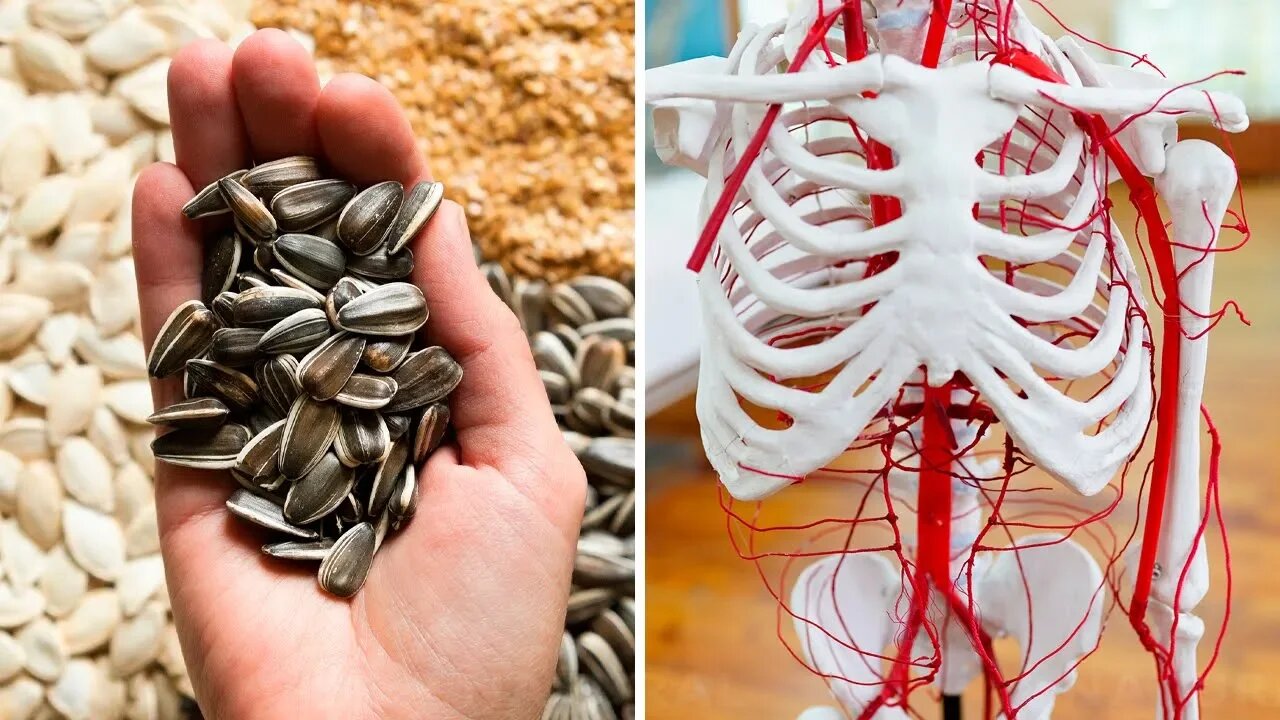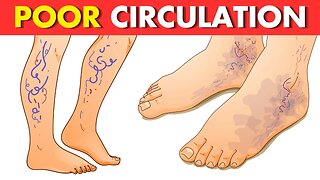Premium Only Content

8 Foods That Lower Blood Pressure Naturally
Eating is an important part of a healthy life.
Did you know that every two minutes, one person dies because of cardiovascular disease?
Behind these numbers, there hides an insidious disease that many times doesn't show itself: hypertension.
That's why measuring your blood pressure is a good habit to pick up on.
If you notice any differences, talk to a doctor.
According to the American Heart Association, the limit of a normal blood pressure is 120/80.
The interval between 120/80 - 140/90 is seen as "pre-hypertension".
A single high result doesn't mean you have hypertension. However, if the results over 140/90 are constant, you should go to the doctor to investigate further.
Do you know what causes high blood pressure?
While the exact cause of this disease is unknown, there are evidences that excessive consumption of salt, alcohol, smoking, processed foods, lack of physical activities, and genetic disposition might be contributing factors.
And if that's not enough, hypertension is also the cause of many diseases, such as diabetes, heart diseases, stroke, kidney failure, and others.
If you suffer from high blood pressure, you came to the right place!
In today's video, we will show you 8 foods that you must include in your diet if you want to normalize your blood pressure.
Including these foods in your diet can bring significant effects on the control of hypertension.
Also, if you suffer from high blood pressure, increase your water intake, drinking in between 67 oz. to 84 oz. per day, and also practice regular physical activities, such as walking or jogging, at least 3 times a week.
----------------------------------------
Facebook: https://bit.ly/38BWbw3
Pinterest: https://bit.ly/2Irvwa6
Disclaimer: The materials and the information contained on Natural Cures channel are provided for general and educational purposes only and do not constitute any legal, medical or other professional advice on any subject matter. These statements have not been evaluated by the FDA and are not intended to diagnose, treat or cure any disease. Always seek the advice of your physician or other qualified health provider prior to starting any new diet or treatment and with any questions you may have regarding a medical condition. If you have or suspect that you have a medical problem, promptly contact your health care provider.
-
 4:50
4:50
Natural Cures
1 year ago $1.16 earned5 Warning Signs of Poor Circulation and How to Fix It
3.66K1 -
 2:43:21
2:43:21
TimcastIRL
6 hours agoDemocrat DEFENSE Of MS-13 Member BLOWS UP In Their FACE, Trump Admin DROPS PROOF | Timcast IRL
178K128 -
 2:08:15
2:08:15
Adam Carolla
2 days ago $5.37 earnedDolph Lundgren on Beating Cancer, Sahil Bloom Talks 5 Types of Wealth & Gen-Z’s Minecraft Madness
36.8K8 -
 3:59:22
3:59:22
Alex Zedra
4 hours agoLIVE! Scary Games Girls Night
33K2 -
 4:25:26
4:25:26
Drew Hernandez
11 hours agoKARMELO ANTHONY FAM BUYS NEW CAR, BIG LETICIA IS SHOOK & EL SALVADOR ILLEGAL IS A WIFE BEATER?
66.4K21 -
 1:15:02
1:15:02
Man in America
11 hours agoTHE GREAT TAKING: They’re Coming for YOUR Assets—the Sinister Plan Exposed w/ James Patrick
43K13 -
 1:55:55
1:55:55
Amish Zaku
5 hours agoCall in Creations EP# 10 Featuring GamerGril
20.4K -
 1:11:52
1:11:52
Omar Elattar
10 hours agoThe Ex-Marine Millionaire: "How I Turned My $26K in Savings to $70M at 35!"
40.5K2 -
 3:15:44
3:15:44
I_Came_With_Fire_Podcast
14 hours agoChina Trade War | Driving Miss Perry | German Court
37.1K4 -
 1:37:07
1:37:07
Glenn Greenwald
7 hours agoAre We Moving Towards War With Iran? PLUS: Zaid Jilani on the El Salvador Deportations and Harvard’s Fight Against Trump | SYSTEM UPDATE #440
115K56